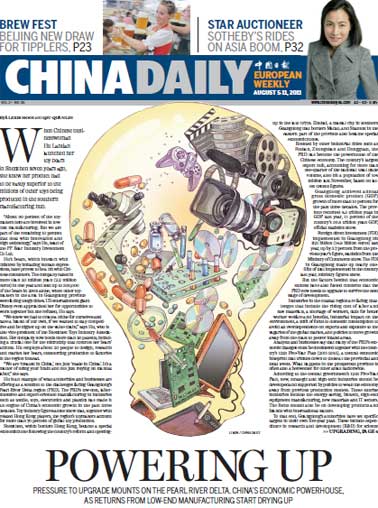Editorials
Time to get tough
Updated: 2011-08-11 07:46
(China Daily)
The oil leaks in Bohai Bay have now lasted for two months. With the operator of the oil rigs, Concon Phillips (COPC), providing poor and long overdue information, public concerns over the pollution have soared. The related parties must strive to solve the problems as soon as possible.
The disaster has raised many questions that have still not yet been answered.
According to the Law on the Protection of the Marine Environment, which was revised in 1999, the maximum administrative fine for pollution caused by offshore oil exploration is 200,000 yuan ($30,300). The State Oceanic Administration (SOA) indicated in early July this was the only legal basis to enforce an administrative punishment on COPC.
However, the law also stipulates that the SOA is entitled to represent the country to claim indemnity from a polluter. It is urgent for the government to immediately organize or entrust a third party to carry out credible and scientific evaluation of the oil leak's environmental toll and the costs in material and time it will require to restore the marine environment.
According to COPC, more than 1,500 barrels of oil have been spilled affecting 3,400 square kilometers of sea, which is much worse than the scenario reported by the SOA in early July. The SOA's rare harsh criticism of COPC in early August probably heralds a legal action for much heavier indemnity. The amount of oil leaked and the damage it caused to the environment are two crucial factors to determine the scale of the indemnity.
Meanwhile, the case clearly shows it is necessary to revise the marine environmental protection law to keep it abreast with the country's aggressive pursuit of marine resources. The SOA should take the chance to devise a clear-cut system to coordinate civil and State litigation in the event of marine environmental disasters.
The efforts in lawmaking, scientific evaluation and the designing of a litigation system should be carried out with reference to international conventions, because marine environmental disasters usually involve parties from different countries. Only when China has fully developed its marine legislature and supervision in the light of international conventions will overseas operators strictly adhere to the nation's rules.
As the world's largest foreign investment market, China has experienced different stages in attracting foreign companies during the past 30 years. At first favorable terms were common in all kinds of policies, regulations and even laws in an attempt to attract foreign capital and advanced technologies.
China should no longer compromise its environment, natural resources, labor force, taxes and legal system as a way to entice foreign and domestic companies.
What really attracts quality investors is a fair and effectively supervised market supported by well-designed and observed laws. China needs to participate in the global market with a fully developed legal system.
China Daily
(China Daily 08/11/2011 page8)
E-paper

My Chinese Valentine
Local businesses are cashing in on a traditional love story involving a cow herder and a goddess
Outdoor success
Lifting the veil
Allure of mystery
Specials

Star journalist leaves legacy
Li Xing, China Daily's assistant editor-in-chief and veteran columnist, died of a cerebral hemorrhage on Aug 7 in Washington DC, US.

Sowing the seeds of doubt
The presence in China of multinationals such as Monsanto and Pioneer is sparking controversy

Lifting the veil
Beijing's Palace Museum, also known as the Forbidden City, is steeped in history, dreams and tears, which are perfectly reflected in design.
